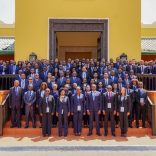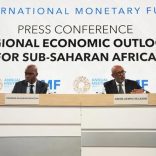Mozambique: Central bank holds 6th Annual Meeting of Branch Directors in Quelimane
Covid-19: Mozambique and PALOP economies to grow this year, except Equatorial Guinea – World Bank

The World Bank estimates that all Portuguese-speaking African countries (PALOPs) will return to economic growth this year, with the exception of Equatorial Guinea, which is expected to maintain, remain in recession in 2021 and 2022.
According to the Global Economic Prospects report released in Washington on Tuesday, Angola is expected to grow 0.9%, after having experienced in 2020 its fifth consecutive year of recession, and Cape Verde will recover from the 11% contraction it saw last year to witness a 5.5% rebound this year. [Read the full World Bank report HERE]
The document, which estimates that sub-Saharan Africa will grow 2.7% this year and 3.3% in 2022, below the previous forecast because of the economic consequences of the Covid-19 pandemic in the region, which in 2020 experienced a recession of 3.7%, also indicates that Equatorial Guinea had a negative economic growth of 9% last year and will remain in the ‘red’, with wealth falling 2.8% this year and by 1.2% in 2022.
Guinea-Bissau, with an expansion of 3% this year and 4% in 2022, is also recovering, from a 2.4% drop last year, as is Mozambique, which after a slight contraction of 0.8% in 2020, is forecast to register growth of 3% this year, and 4% the following year.
In the forecasts released yesterday, which lower the previously estimated growth for sub-Saharan Africa from 3.1% to 2.7% this year, the World Bank predicts that São Tomé and Príncipe will recover from the 6.5% drop in 2020 to record growth of 3% this year and 5.5% in 2022.
The report points out that the countries most affected were commodity exporters, particularly oil exporters, including Portuguese-speaking Angola and Equatorial Guinea, and those dependent on travel and tourism, such as Cape Verde or São Tomé and Príncipe, in addition to countries with large domestic Covid-19 outbreaks, including South Africa, the hardest hit country in the region.
The World Bank expects a 2.7% recovery in the region this year, noting that “while the recovery in private consumption and investment is forecast to be slower than previously envisioned, export growth is expected to accelerate gradually, in line with the rebound in activity among major trading partners”.
Even so, “the pandemic is projected to cause per capita incomes to decline by 0.2% this year” the report reads. “This reversal is expected to push tens of millions more people into extreme poverty over last year and this year.”
At the global level, the World Bank has revised its projection for global economic growth to 4% in 2021, still expecting a 4.3% contraction in 2020
Economic growth (forecast): 2021….2022
Angola ……….…………………..…….0.9… ..3.5
Cape Verde ………… ………………..5.5… ..6.0
Guinea-Bissau ……… …………… 3.0… ..4.0
Equatorial Guinea…………………-2,8… ..-1,2
Mozambique ………………………. .2.8… ..4.4
São Tomé and Príncipe……….… 3.0… ..5.0
Sub-Saharan Africa… ……………..2.7… ..3.3
The latest #WBGEP2021 report projects the global economy will expand 4% in 2021—marking a return to growth after the 2020 recession. But substantial risks remain, and the recovery is expected to be subdued. https://t.co/Dm6G586i2l pic.twitter.com/VJsRvhy8sI
— World Bank (@WorldBank) January 5, 2021












Leave a Reply
Be the First to Comment!
You must be logged in to post a comment.
You must be logged in to post a comment.